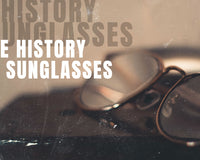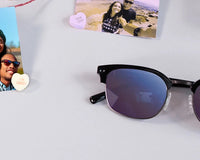
Almost all sunglasses perform their primary task of protecting against sunlight’s UV rays and blue light, both of which can cause long-term eye damage. Beyond that, sunglasses can be geared for specific activities like sports to help improve vision and performance. Tinted lenses absorb parts of the light spectrum—the tint determines which parts—effectively filtering out unwanted aspects of the color band. Depending on the tint and ambient light conditions, tinted sunglass lenses can diminish glare and enhance the ability to distinguish between increments of light versus dark (i.e., contrast sensitivity). Certain tints offer advantages for specific environments; other lens features like polarized lenses and mirror coatings can further improve your vision.
DIFFERENT TYPES OF LENS FOR EVERY ENVIRONMENT
Fresh Water
Best lenses: amber (ignitor), brownLenses in the amber and brown range are the best choice for fresh water environments and activities like fly fishing in shallow water, rivers, lakes or flats. Lenses in these colors enhance depth perception and improve contrast. Lighter lenses are also useful for low light conditions like those of early morning or evening and cloudy days.useful for low light conditions like those of early morning or evening and cloudy days.
Inshore
Best lenses: amber (ignitor), brown, bronze mirrorAmber, brown, and bronze lenses enhance vision and contrast sensitivity, making them suitable for inshore fishing where lighting conditions vary.
Ocean
Best lenses: amber (ignitor), gray green, gray (platinum), blue mirrorBright light from the sun and reflected off water require light reduction to prevent eye fatigue. Lenses in amber, gray green, platinum, and blue reduce glare but still allow for true color perception.
Road
Best lenses: amber (ignitor), gray (platinum), gray greenFor driving or cycling, lighter lenses provide enhanced contrast, allowing you to better spot uneven road surfaces and other obstacles.
Trail
Best lenses: brown, gray green, amber (ignitor)Running or biking through wooded areas or bright sunlight requires lighter lenses that allow you to see the trail. Brown, gray green, and amber lenses are good for general purpose use and variable lighting conditions.
Field
Best lenses: amber (ignitor), brownAmber and brown lenses enhance depth perception and improve contrast, making them ideal for activities like hunting, golf, tennis, or any sport where gauging distance is necessary.
Snow
Best lenses: black (blackout)In bright conditions with midday sun reflecting off snow, darker tints for goggles reduce the amount of light that passes through the lens.

WHY BUY POLARIZED SUNGLASSES
Polarized lenses contain a special filter that blocks reflected light, reducing glare. Outdoor enthusiasts including fishermen, boaters, bikers, skiers, golfers, runners, and cyclists benefit from the elimination of glare for improved safety and performance.
LENS CONSTRUCTION TO OPTIMIZE PERFORMANCE
ChromaPop, Techlite glass, and Carbonic lens constructions are optimized to provide a variety of optical and impact-resistant benefits. Smith Optics precisely aligns the finest polarized filters and finishes lenses with multilayer mirror, Anti-Reflective (A/R), anti-scratch, and Hydroleophobic lens coatings. The end result is an artfully crafted lens that preserves color perception and delivers optimized optical clarity and precision in all environments.












